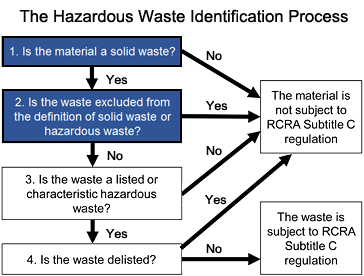The Of Reclaim Waste
The Of Reclaim Waste
Blog Article
About Reclaim Waste
Table of ContentsThe Main Principles Of Reclaim Waste 7 Simple Techniques For Reclaim WasteReclaim Waste for BeginnersOur Reclaim Waste PDFsFascination About Reclaim Waste
Check out the types, incidents, and types of liquid waste. Residential sewage waste describes the waste and items from a household septic tank. This type of waste is created by humans in homes, institutions, and other structures. This only includes septic systems that have a drain area. The proper management and disposal of residential sewer waste require liquid waste to be transferred to a sewer treatment plant where the appropriate methods and tools are used to purify and dispose of waste.
Industrial waste often includes possible hazards, such as combustible materials or a blend of fluid and solid waste products, and needs an extra advanced and detailed disposal process. The disposal of commercial waste generally includes the filtration of waste before transport to ensure risk-free and appropriate disposal. Industrial waste is produced from results and overflow of commercial procedures and manufacturing.
This type of waste can not utilize the same sewage administration transportation or procedures as septic or industrial fluids. The hazardous waste administration procedure needs the examination and testing of liquid waste before it goes through the disposal procedure (industrial wastewater treatment). Drainage waste is the fluid waste that originates from runoff and excess stormwater in extremely booming locations or cities
Drainage waste can trigger contamination and flooding if not managed correctly. Discover more concerning sewage system cleansing and waste administration. Guaranteeing appropriate waste management can avoid calamities and minimize environmental injury. Both individuals in property settings and experts in business or manufacturing sectors can take advantage of recognizing the processes and laws of fluid waste administration.
The Reclaim Waste Ideas
Call PROS Services today to discover about our waste monitoring and disposal services and the appropriate ways to look after the liquid waste you create.
(https://www.kickstarter.com/profile/reclaimwaste1/about)This supposed 'wastewater' is not only an important resource but, after treatment, will certainly be released to our land, rivers or the ocean. Made use of water from toilets, showers, baths, kitchen sinks, laundries and industrial procedures is understood as wastewater.

water used to cool down machinery or tidy plant and equipment). Stormwater, a kind of wastewater, is overflow that flows from farming and urban locations such as roofings, parks, yards, roads, courses and seamless gutters into stormwater drains, after rain. Stormwater streams without treatment straight to regional creeks or rivers, ultimately getting to the ocean.
See This Report on Reclaim Waste
In Queensland, the majority of wastewater is dealt with at sewer therapy plants. Wastewater is transported from domestic or commercial websites via a system of sewage systems and pump terminals, recognized as sewage reticulation, to a sewage therapy plant.
The Division of Natural Resources recommends local federal governments concerning handling, operating and preserving sewage systems and treatment plants. In unsewered locations, city governments might call for owners to set up private or home sewage therapy systems to deal with domestic wastewater from toilets, kitchens, restrooms and washings. The Division of Natural Resources authorises the usage of family systems when they are shown to be effective.
Most stormwater obtains no treatment. In some brand-new class, treatment of some stormwater to remove clutter, sand and crushed rock has started utilizing gross contaminant catches. Wastewater treatment occurs in 4 stages: Gets rid check my source of solid issue. Larger solids, such as plastics and various other items mistakenly discharged to sewage systems, are removed when wastewater is gone through displays.
Uses small living microorganisms knows as micro-organisms to break down and get rid of remaining dissolved wastes and fine fragments. Micro-organisms and wastes are incorporated in the sludge.
Reclaim Waste - Questions
Nutrient removal is not offered at all sewage treatment plants due to the fact that it calls for pricey specialist devices. Clear liquid effluent created after treatment might still have disease-causing micro-organisms - liquid waste disposal melbourne.

The majority of wastewater streams into the sewage system. Under the Act, regional federal governments provide approvals and permits for environmentally pertinent activities (Periods) including wastewater releases that may have a regional impact.
Examine This Report about Reclaim Waste
Monitoring offers accurate details about water quality and can verify that licence conditions are being satisfied. The info acquired with tracking supplies the basis for making water top quality choices.
Report this page